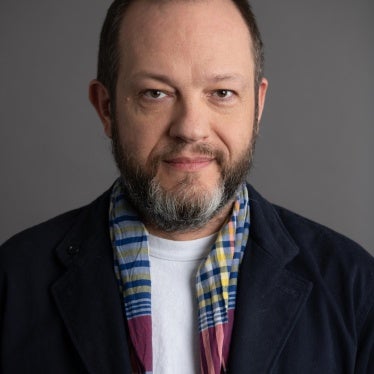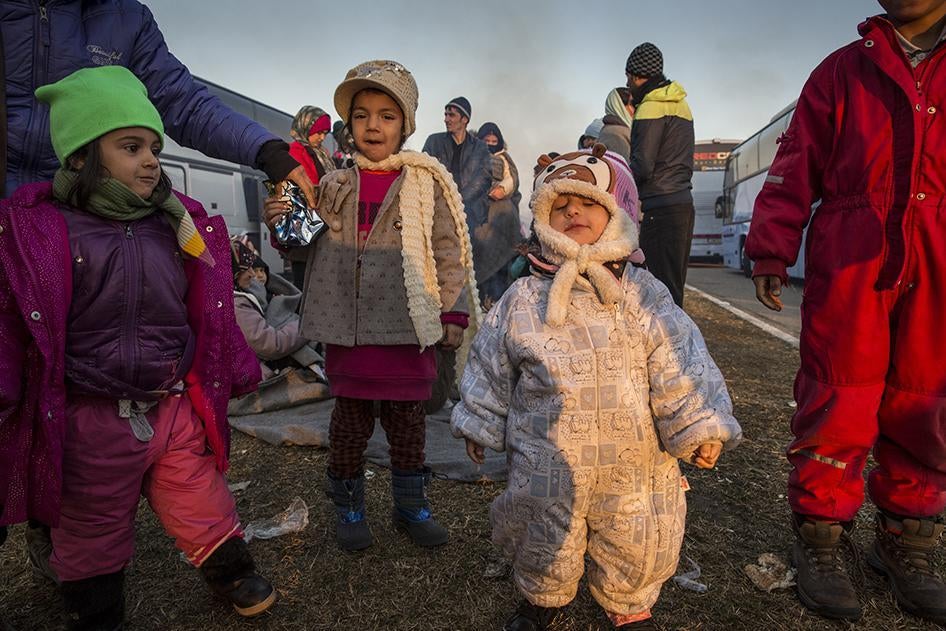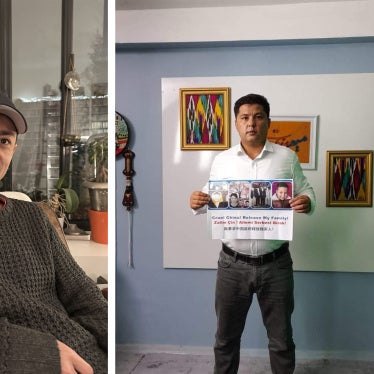With thousands of people fleeing Aleppo toward the Turkish border and talk of the European Union’s future at stake, Europe’s debate on the refugee crisis is taking on an air of desperation.
Many inside and outside the Netherlands have seized upon a plan by the Dutch Labor leader Diederik Samsom to return all asylum seekers to Turkey from Greece in exchange for the voluntary resettlement of 150,000 to 250,000 refugees from Turkey to the EU. While the plan has some positive aspects, other elements raise serious human rights concerns. Equally important, it does nothing to move forward the vital EU plan to share responsibility for asylum seekers among EU states.
Increasing refugee resettlement from Turkey is worth pursuing. Making enough places available could offer a credible alternative to smugglers and deadly boat crossings. Increased EU action could help encourage rich countries elsewhere in the world to pitch in. But that will be a challenge given the EU’s paltry record of resettlement admissions. By mid-January, fewer than 800 people had been brought to Europe to carry out a 2015 commitment by EU governments to relocate 22,500 people.
Resettlement offers should not require a trade-off, though, against the right to spontaneously seek asylum in Europe. To do so would risk moving Europe toward an Australia-style system that has led to horrific abuses.
Responding to criticism of the plan, Samsom said that for Greece to return people to Turkey, it would first need to meet EU standards as a “safe third country,” a designation he acknowledges is not yet merited. That designation would make it lawful under EU law to send back asylum seekers who are not Turkish to Turkey without determining their asylum claims in the EU. The European Commission hinted that it could support the plan but the Turkish government has flatly rejected it.
Efforts to improve Turkey’s capacity to fairly process and humanely host asylum seekers are sensible but will take time. Turkey is struggling with 2.5 million Syrian refugees. While it grants them temporary protection, they are not entitled to refugee status. Other refugees, including Iranians, Iraqis and Afghans, have even less legal protection. While Turkey is bound by the Refugee Convention, it retains an exception that excludes from protection anyone not originally from Europe. And it has a track record of deporting Syrians in violation of international law. By these measures it fails the EU test.
Turkey deserves credit for taking some steps to make life easier for Syrians, notably by agreeing in early 2016 to let many apply for work permits. But Syrians and others still face huge problems accessing education, health and other services. The 3 billion Euro in aid tied to the controversial EU-Turkey migration deal could help improve life for Syrians and others in Turkey if targeted effectively, but that won’t happen overnight.
Despite its aims, the EU-Turkey deal has yet to have much impact on departures to Greece across the Aegean, a journey 850,000 people made last year and 68,000 since January. But with its border with Syria already effectively closed, Turkey has made it even harder for people to enter the country from Syria, leading Lebanon to deport at least 200 Syrians being to Damascus in January. Turkey announced new visa restrictions for Iraqis in early February.
In short, despite its generous hosting of Syrians, Turkey won’t be a safe country of asylum any time soon. Acting as though it can be made safe by declaring it so, as some European politicians, including Greece’s interior minister, seem to think, is a dangerous illusion. It’s also why the Samsom Plan is not the right way forward.
The Dutch presidency of the EU Council is an opportunity to show the way toward resolving the crisis. That means ramping up resettlement without strings and addressing the chaos inside European borders with a properly functioning common EU asylum system and shared responsibility across all member states. The Dutch presidency has committed to push for implementation of the faltering EU plan to relocate 160,000 asylum seekers from overburdened Greece and Italy, yet it has relocated only 50 people. Resettlement and relocation. That’s the plan the Netherlands and Europe should back.










